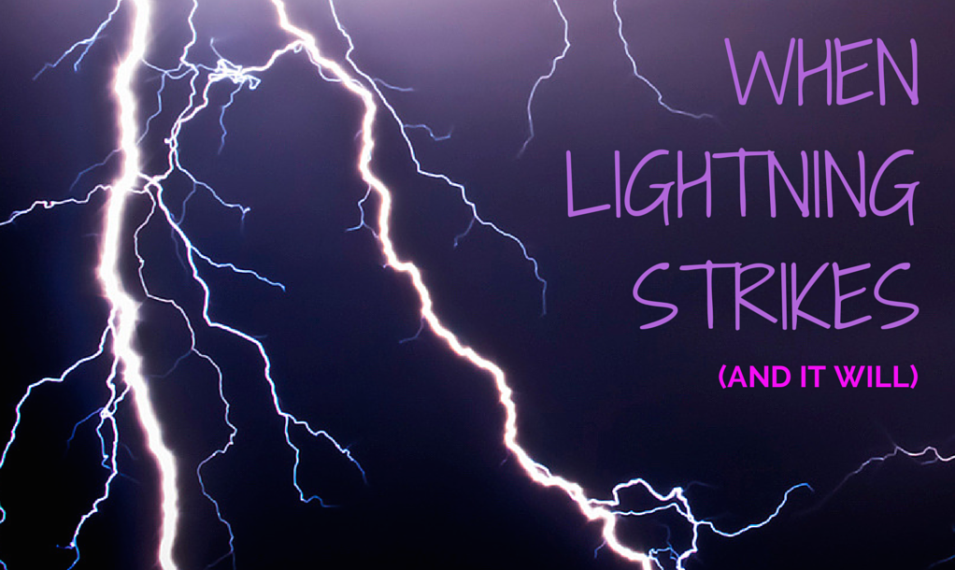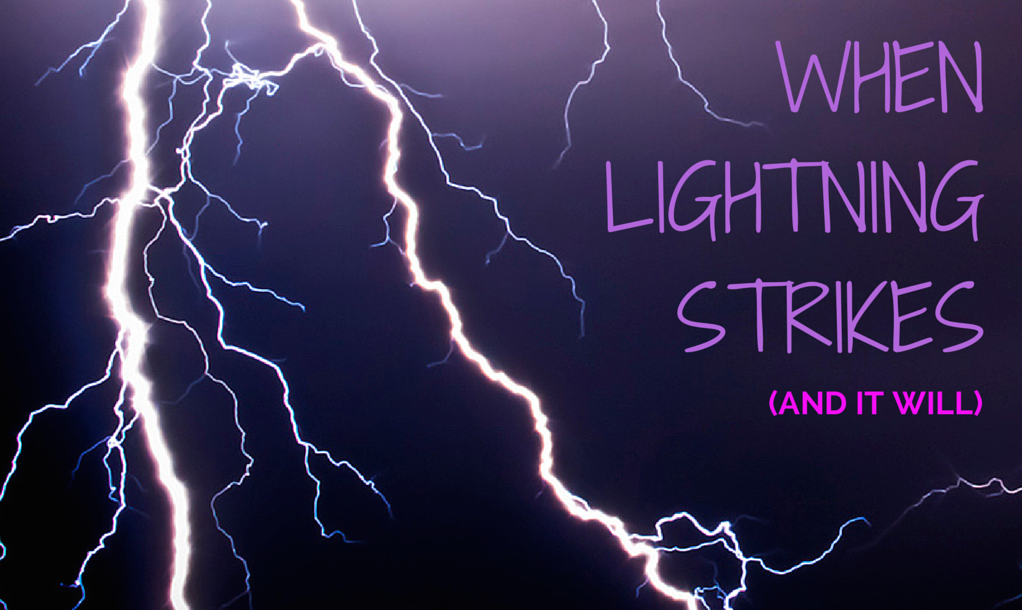

Lighting WILL strike.
It’s not IF, but where and when.
The fact is, if you stay in the sales profession for any length of time, it is an absolute guarantee that you will experience failure – and you will have to pick up the pieces. I’m not talking about your failure; I’m talking about someone else’s failure – someone in your company – and the impact on you and your customer. You will have plenty of opportunities to fall short yourself, so nothing is more frustrating that to do it all right and have someone else drop the ball.
A product ships wrong. A deadline is missed. Someone doesn’t show up. Tech support stumbles.
When people say, “Stuff happens,” they aren’t kidding. If it hasn’t already, trust me; it will. The worst-case scenario? That failure occurs very early in your relationship with the customer.
Despite your best sales efforts initially, customers typically have a range of skepticism built into the decision-making process. They may decide to make a change and buy from you, but they are holding their breath and crossing their fingers, hoping that things go well and their decision to use you will be justified in the end.
In fact, selling is a lot like a blind date – you really need to make a good impression the first time around. Once your date gets to know you and like you, he or she is less likely to be offended by something you do. Unfortunately, a big mistake on the first date probably means “no sale.”
“Relationship” might be the most misunderstood concept in selling. Some reps think several calls, a couple of boxes of doughnuts, and a conversation or two constitutes a “relationship.” Sadly, they are mistaken. The truth is, a customer may be buying your products and you might not have a relationship.
A relationship means that someone is comfortable with you and, more importantly, they trust you. That trust leads them to ask for your help. To seek your opinion. To consider your expertise. And, most importantly, to give you a break when things don’t go according to plan.
According to research done by H.R. Chally, one of the primary things that customers want from salespeople if for them to “own” the problems they encounter with the salesperson’s products or services. When they have issues, they want to know that you will handle it. They don’t want you to go missing in action, or blame someone else in the company, or pass the buck. They just want the problem solved.
Take this to the bank: Products get shipped wrong. Quality issues arise. Service falls short. We don’t like it, and we do everything we can to prevent it, but mistakes happen. Those are the times when you have to depend on your reputation and your relationship to overcome the issue. Once the customer knows you and trusts your motives, it is much more likely that you can resolve the situation and retain a profitable business relationship.
So, if doughnuts and sales calls don’t necessarily build a relationship, what does? How do you build a relationship that overcomes the occasional mistake and prevents a customer from considering a competitor?
Here are five practices that are non-negotiable and must be done consistently:
1. Follow through. Do what you say you will do, every single time.
2. Be responsive. Make use of the different modes of communication in your office and keep in touch with your customer. These could be through messages, emails, or telephone systems present in your office (learn more about NEC phone systems here). The point is, make them feel like a priority by returning messages and phone calls promptly.
3. Manage your product or service implementation carefully. Make all of your resources available during this critical time. Be available when it counts.
4. Keep your customer up to date. Keep your customer informed of new products and any changes in your industry. If they get critical information from a competitor, it could spell big trouble. Don’t give your competition an opening they don’t deserve.
5. Thank your customers for their business. Gratitude is a powerful salve for failure because the customer knows they can count on you and you appreciate them. Take them for granted and they will send you packing when things go south.
Failure is inevitable. The question is, when lightning strikes do you have a relationship that will allow you to weather the storm?
Kelly Riggs is a business performance coach and founder of the Business LockerRoom. A former national Salesperson of the Year and serial entrepreneur, Kelly is a recognized thought leader in the areas of sales, management leadership, and strategic planning. He serves clients ranging from small, privately held companies to Fortune 500 firms. Kelly has written two books: “1-on-1 Management™: What Every Great Manager Knows That You Don’t” and “Quit Whining and Start SELLING! A Step-by-Step Guide to a Hall of Fame Career in Sales.”